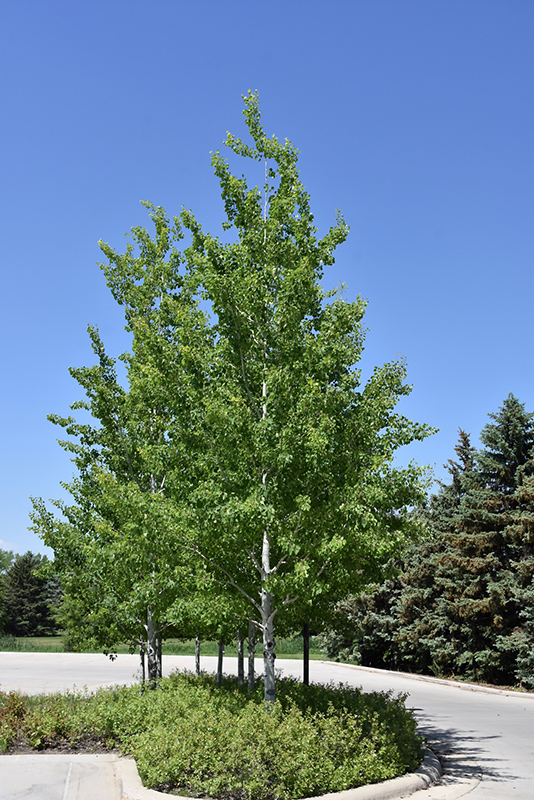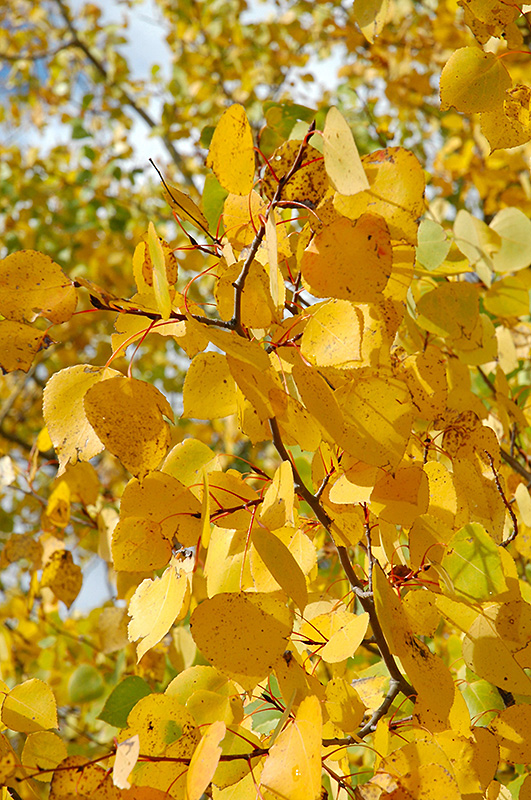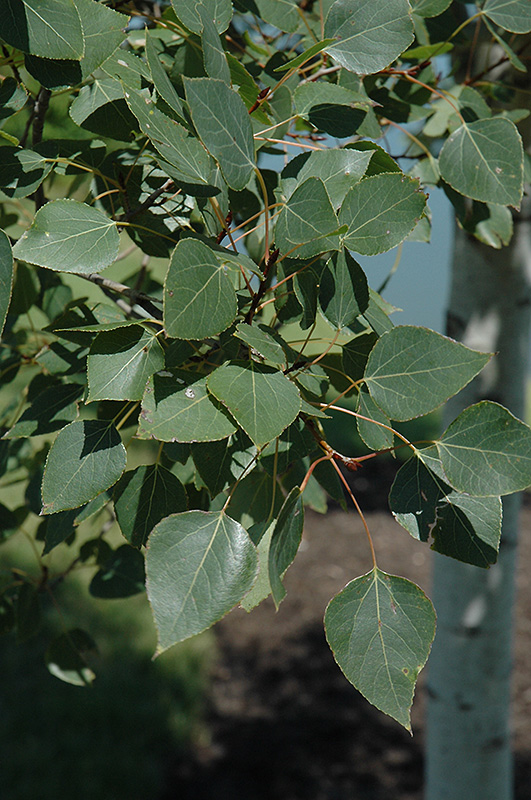Plant Search
Prairie Gold Trembling Aspen - New For 2025!
Populus tremuloides 'NE Arb'
Height: 40 feet
Spread: 20 feet
Sunlight:
![]()
Hardiness Zone: 3a
Other Names: Quaking Aspen
Description:
Adapted to the heat, drought and humidity of the Midwestern Prairie, this variety brings lowland adaptability and disease resistance to this high elevation favorite; greatly expands the planting range of this species
Ornamental Features
Prairie Gold Trembling Aspen has rich green deciduous foliage on a tree with an oval habit of growth. The round leaves turn an outstanding gold in the fall. However, the fruit can be messy in the landscape and may require occasional clean-up. The smooth white bark adds an interesting dimension to the landscape.
Landscape Attributes
Prairie Gold Trembling Aspen is a deciduous tree with a shapely oval form. Its average texture blends into the landscape, but can be balanced by one or two finer or coarser trees or shrubs for an effective composition.
This tree will require occasional maintenance and upkeep, and is best pruned in late winter once the threat of extreme cold has passed. It has no significant negative characteristics.
Prairie Gold Trembling Aspen is recommended for the following landscape applications;
- Shade
- Naturalizing And Woodland Gardens
Planting & Growing
Prairie Gold Trembling Aspen will grow to be about 40 feet tall at maturity, with a spread of 20 feet. It has a low canopy with a typical clearance of 4 feet from the ground, and should not be planted underneath power lines. It grows at a fast rate, and under ideal conditions can be expected to live for 50 years or more.
This tree should only be grown in full sunlight. It is an amazingly adaptable plant, tolerating both dry conditions and even some standing water. It is considered to be drought-tolerant, and thus makes an ideal choice for xeriscaping or the moisture-conserving landscape. It is not particular as to soil type or pH. It is somewhat tolerant of urban pollution. This is a selection of a native North American species.
A NetPS Plant Finder tool




